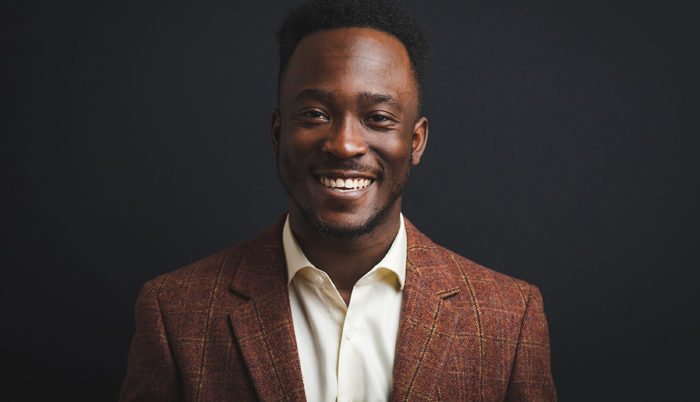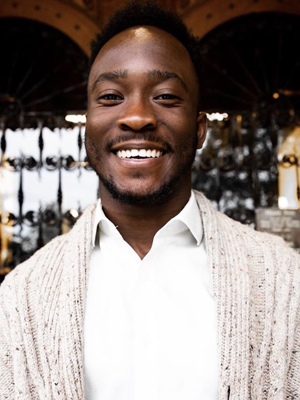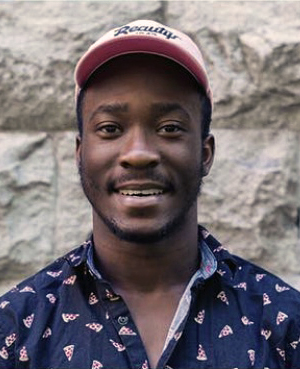
Last spring, seasoned student leader Jemark Earle was elected President of the Student Society of McGill University (SSMU), the union that represents McGill’s 25,000 undergraduate students. Focus online interviewed the 3L student, whose passion for student advocacy, mediation and arbitration led him to study law.
What inspired you to run for SSMU president?
My friends encouraged me to run in the election. I served as the SSMU VP Student Life during my undergraduate degree, and there were projects I wished I could have worked on and implemented if I’d had more time. Being in SSMU is also a unique opportunity to engage with both the students and the university administration at a level that carries tremendous weight. While it is a difficult role, it most certainly is a very rewarding experience. I am honoured that the student body put their faith in me.
What do you hope to achieve during your term as SSMU President?
My main goal is to implement a long-term plan for SSMU to ensure that it focuses on continual growth. I think many students can agree that SSMU currently lacks the infrastructure to support the expansion of its services to the students on campus.
Additionally, as one of the few students on University-level governing bodies, I hope to ensure that marginalized and underrepresented student voices on campus carry more weight in high-level decisions. It is essential to increase the level of consultation with these groups, and to provide them with the space and resources they need to amplify their voices.

Why did you get involved in student life?
There is so much more to one’s university experience than just studying for an exam. Many students take on extracurricular activities such as playing sports or getting involved in a club. For me, that was student government. Being involved with student life allows me to engage with the community at a level where I am able to make change.
As a Black student leader, I want to show other marginalized students that they can hold positions of power too. Leadership positions are largely inaccessible to Black, Indigenous and other people of colour because these spaces have historically excluded us from having a voice at the table. I care about the community; I want to continue advocating for the rights of marginalized students, and I want them to be able to see themselves in these positions too.
How has the pandemic affected your plans for the year 2020-2021?
The start of the semester has already shown how much more difficult it is to interact with the student body in a virtual manner. Services and events that would normally occur in person have either transitioned online or been paused temporarily.
Students feel bombarded with the amount of emails they are receiving. They feel lost not knowing where to find the information they are looking for. This has led to a shift in focus on how we can engage with them without adding to their stress.
When dealing with university administration, much of the focus is now on addressing accessibility concerns related to remote learning, and being able to better support students. Additionally, one of our ongoing projects is a tech drive, collecting old/used tablets and computers, fixing them up and donating them to students and community members in need.
What has been your most memorable experience during your law studies so far?
It would have to be serving as a program coordinator for Pro Bono Students Canada (PBSC). I’ve experienced first-hand what Montreal organizations do to help close the access-to-justice gap that exists in marginalized communities. The gaps in Canada’s legal systems disproportionately impact people experiencing systemic oppression, intersectional inequities, or with limited financial means. Equitable access to justice is critical to a healthy, democratic society. I am honoured to have worked with an organization dedicated to advancing this goal.

Do you have a favorite field of the law yet?
Outside of my law studies, I have worked for a few organizations that unionized during the time I worked for them or began the process to do so. While I was never directly involved, I followed along closely, attended unionization meetings when possible, and provided as much feedback as I could during the consultations. As a result, I was already very interested in the area of employment and labour law.
I also took a Mediation course last year, and I am currently enrolled in Extra-Judicial Dispute Resolutions. These have been some of the most engaging and interesting courses I have taken to date. Since coming to law school, I have focused on alternative dispute resolution in the context of employment and labour, as these two fields of law intersect in a manner that complements my interests.
Who has been an inspiration/role model in your life?
Growing up, my role model was always my mother. I am the youngest of three boys in a low-income family, and we were raised by a single mother. She immigrated to Canada when she was 18, and did not have the opportunities that my brothers and I have as Canadian-born citizens. Watching her work extremely hard to provide for my brothers and I is one of the main factors driving me to continue going that extra mile.
I also continue to be inspired by my peers at McGill Law. In the time I have spent here so far, I have met and interacted with numerous individuals who I am confident will go on to become important jurists, prominent world leaders and Supreme Court justices.
We are a cohort that continues to push and drive each other, and I cannot wait to see what everyone does in the future.
Interview by Karell Michaud.
